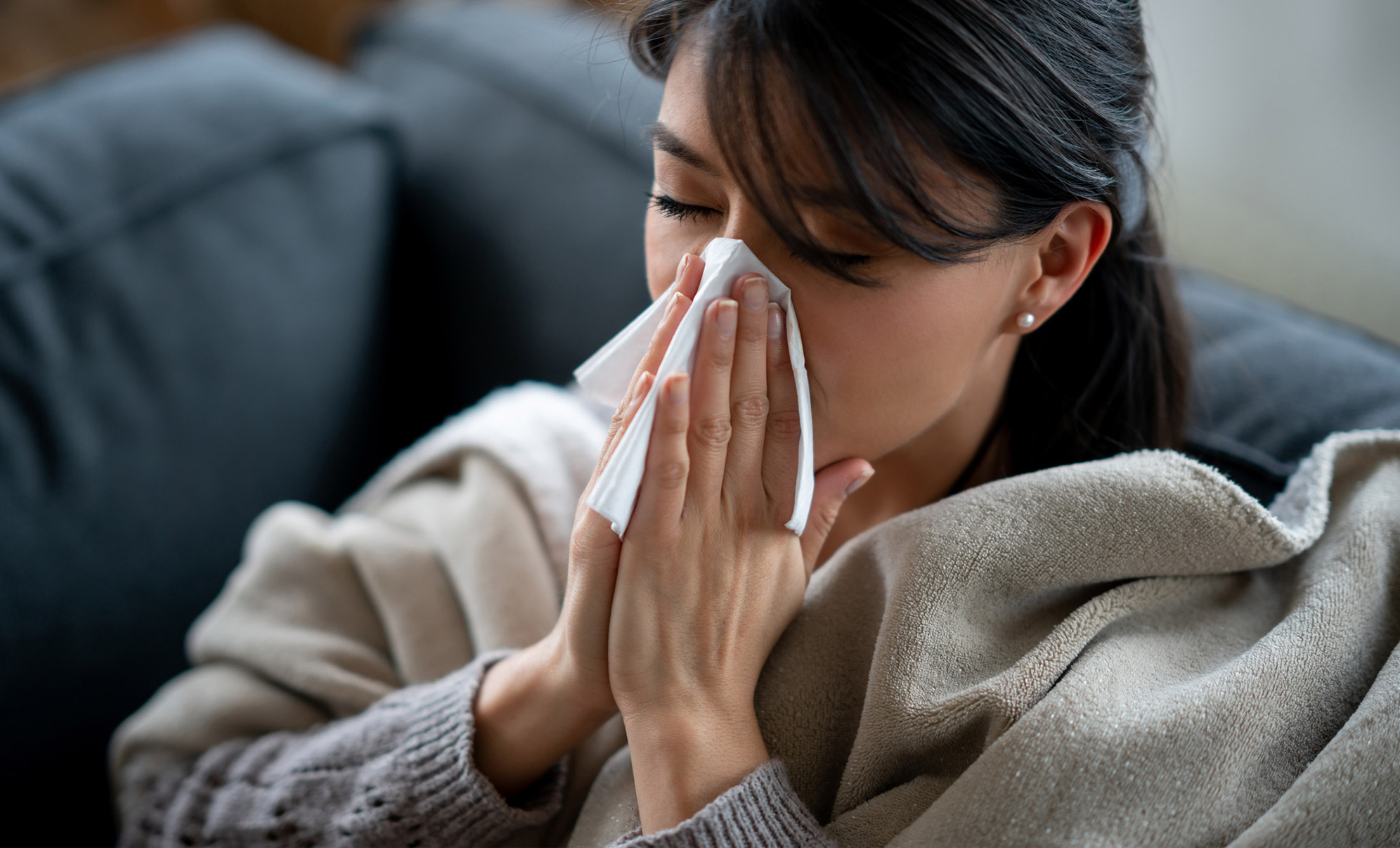COVID-19 is a new illness that can affect your lungs and airways. It’s caused by a virus called coronavirus. Most people with COVID-19 have mild disease and get better within a week or two, but some people may develop a more serious condition, such as pneumonia. The symptoms of COVID-19 can range from mild to severe and can appear 2-14 days after exposure to the virus.
You need to learn about the symptoms and what to do if you have them. This will help protect you and others from COVID-19 symptoms.
Below find a detailed explanation of the symptoms to watch out for:
1- Runny nose

This symptom is more common in children than adults. A runny nose is often the first sign of a cold, but it can also be a symptom of allergies or other conditions. You will likely have a cold or the flu if a fever, sore throat, or coughing accompany your runny nose.
2- Sore throat

A sore throat is a common symptom of the flu and other respiratory infections, such as COVID-19, colds, and strep throat. It can also be caused by allergies, viral illnesses such as mononucleosis (mono), or bacterial infections such as strep throat. A sore throat accompanied by a fever, runny nose, or coughing is more likely caused by a respiratory infection.
3- Cough

A cough is another common symptom of respiratory infections, such as COVID-19, the flu, and colds. Allergies, viral illnesses such as mono, or bacterial infections such as strep throat can also cause it. A cough accompanied by a fever, runny nose, or sore throat is more likely caused by a respiratory infection.
4- Fever

A fever is a common symptom of many illnesses, including the flu, colds, and COVID-19. Other conditions, such as malaria, typhoid fever, and viral diseases, such as mono can also cause a fever. If you have a fever, it’s important to monitor your temperature and seek medical care if it gets too high.
5- Shortness of breath

Shortness of breath is a common symptom of respiratory infections, such as COVID-19, the flu, and colds. Other conditions, such as asthma, heart disease, and lung disease, can also cause it. If you have shortness of breath, seeking medical care is important.
6- Muscle aches

Muscle aches are a common symptom of the flu and other viral infections, such as COVID-19 and mono. Other conditions can also cause them, such as arthritis and injuries. If you have muscle aches, it’s important to seek medical care if they are severe or accompanied by other symptoms.
7- Fatigue

Fatigue is a common symptom of many illnesses, including the flu, colds, and COVID-19. Other conditions, such as anemia, cancer, and heart disease, can also cause it. If you are experiencing fatigue, it’s important to seek medical care.
There are instances you’ll need to seek medical advice, including;
a)If you have a fever, cough, or shortness of breath and have been in close contact with a person with COVID-19 or recently traveled to an area with widespread or ongoing community spread of COVID-19.
b)If you develop any other symptoms not listed here.
c)If your symptoms are severe, such as difficulty breathing.
If you think you may have COVID-19, call your healthcare provider or local public health department for guidance on seeking medical care.
